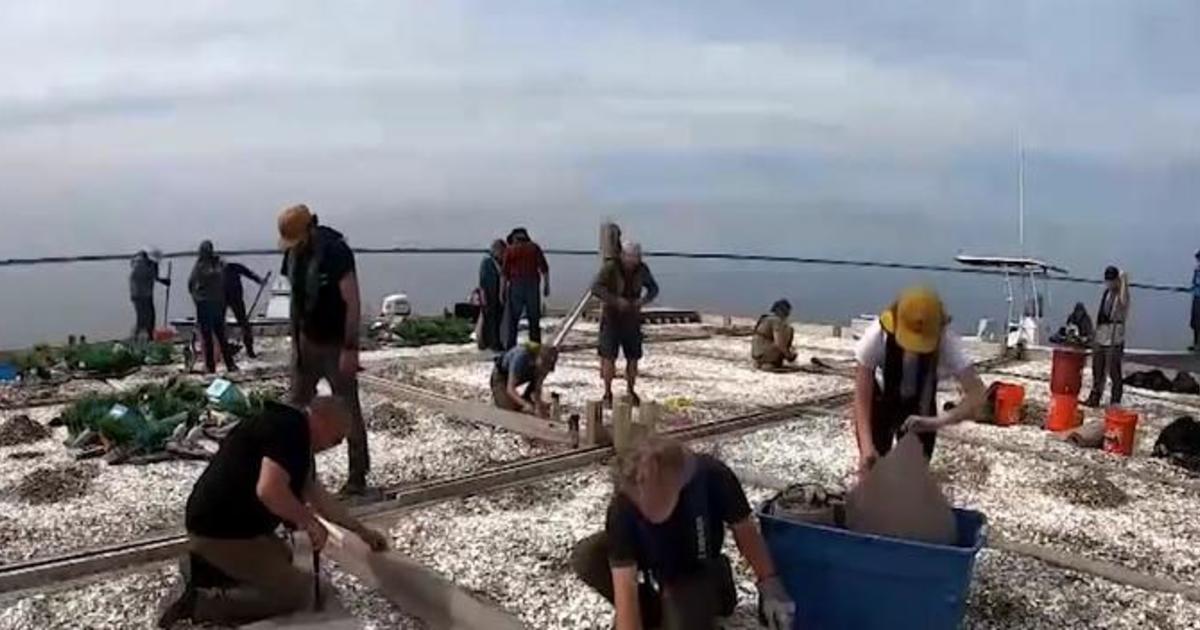Scientists Collect Female Mussels To Restore Population, Keep Waterways Clean
BALTIMORE (WJZ)-- In most of Maryland's streams and rivers, fresh water mussels used to be common, but not any more.
Very few waterways contain a mussel called the eastern elliptio. An exception is Deer Creek in Harford County. That's where scientists went to collect female mussels.
"We want to use a healthy mussel population to help start a new population in a similar part of the state," according to Department of Natural Resources biologist Matt Ashton.
The mussels are held in aquariums until they release their microscopic larvae, which is collected. Then it gets complicated.
"Their larvae are parasitic and they require a fish to act as their host and turn the larvae into juvenile mussels," Ashton said.
Not just any fish, but American eels. The collected larvae are poured over the eels. The larvae then feeds off the eel's gills for a couple of weeks. When big enough, they drop off as juvenile mussels.
When it happens in the wild, Ashton says, "If they fall in a good place they have a chance to survive. If they fall off in a bad place they'll likely die."
The mussels being raised at the Cedarville Fish Hatchery will be planted in a good place in the Patuxent River when they are large enough. The reason: a number of dams have been removed from the river and the eels have returned. It's hoped the human-raised mussels will have a shot at reproducing on their own.
According to Ashton, this effort is about more than just the mussels.
"We want to increase water filtration. All the good things that mussels do, like provide food for other animals. We want more of that in the rivers," he said.
Follow @WJZ on Twitter and like WJZ-TV | CBS Baltimore on Facebook



